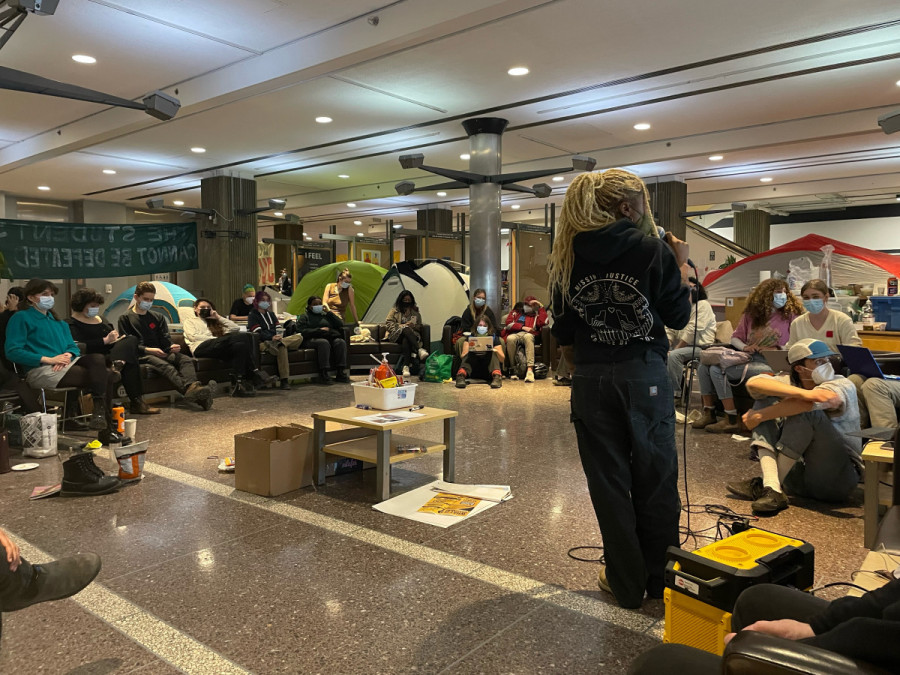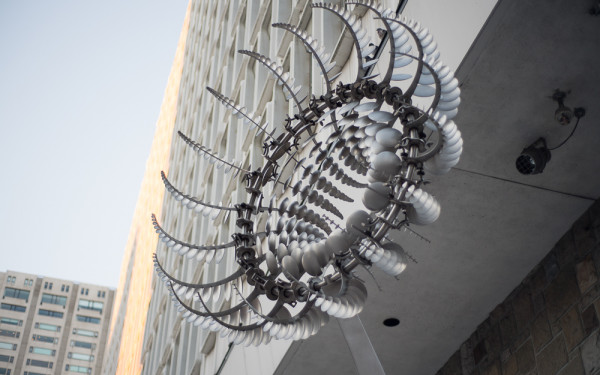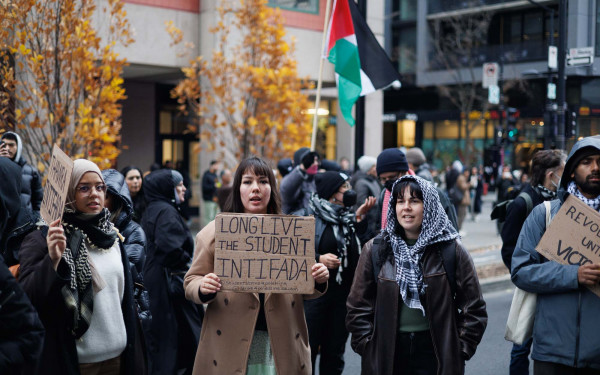“The students cannot be defeated”: Occupiers call for a complete reconstruction of Concordia’s systems
Activists organized a general assembly to bring forward student concerns and brainstorm a plan of action
On Thursday, March 24 at 7 p.m., about 30 students gathered, once again, in the Hall building. Within minutes, more participants had joined via Zoom.
During the assembly, members of different student associations voiced a variety of issues, including limited student health support, lack of social integration perceived by international students, poor academic advising, lack of faculty diversity, and the need for more financial support for mental healthcare and sustainable food programs.
“We must address the issues for which the university should be held accountable,” said Akira De Carlos. “We want to come away from this with some tangible action.”
Several protesters said they believe a lack of student mobilization on campus has resulted in their concerns going unnoticed by the administration
“We need to be more engaged, so people are aware of what’s going on,” said the mobilization coordinator, Payton Mitchell. “Students are afraid that if they act, it might harm their academic career in some way.”
That’s especially the case for M, who wished to remain anonymous for security purposes.
M said the university does not support and fully invest in orienting and integrating its international students.
“I feel that we need to be part of university clubs where we can come together, talk about our problems, and share our pain,” she said. “There needs to be a sense of community among students.”
Other participants stressed the importance of Canadian universities familiarizing foreign students with job opportunities.
Another concern continues to be students’ mental health, according to the protesters in the Hall building.
“One should ask why the university does not have enough certified therapists, obviously this has to do with salary and work conditions,” said Saber Dergham, a linguistics and anthropology student.
“We must address the issues for which the university should be held accountable. We want to come away from this with some tangible action.” — Akira De Carlos
“They promised us that we can access health care through them, which [was a lie].”
Students also complained about the absence of restaurant options and food accessibility on Loyola campus. Many shared stories of Loyola residents who had to pay massive fees as part of the mandatory meal plan, just to be served poor quality food.
“People want to know where their money is going,” said Mitchell.
By the end of the event, organizers agreed that further direct actions need to be taken, such as hosting regular meetings, getting access to budgets from the university, and mobilizing against Concordia’s food provider ‘Aramark.’
“I think at this point we’re open to any idea of what the next actionable steps are to address the issues we’ve raised, and then a place and a date to meet and follow up,” said De Carlos.








